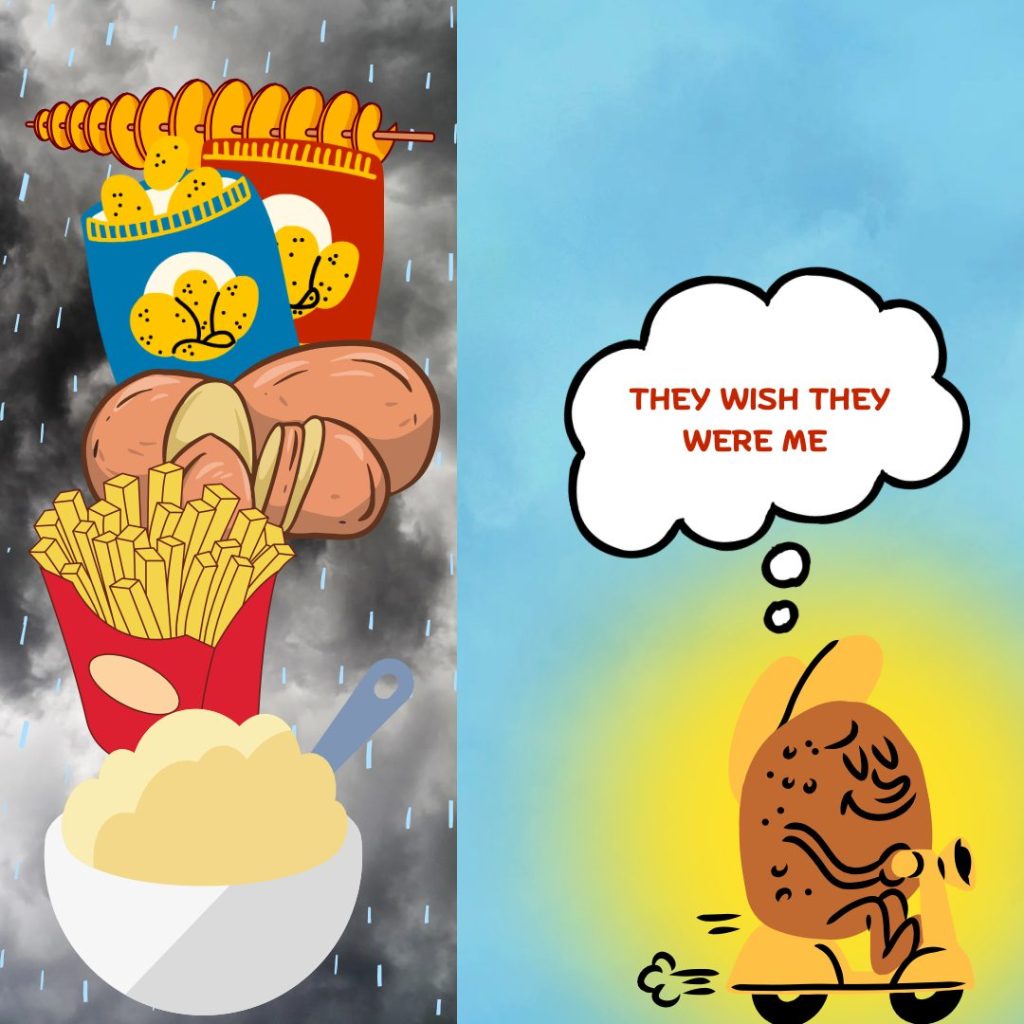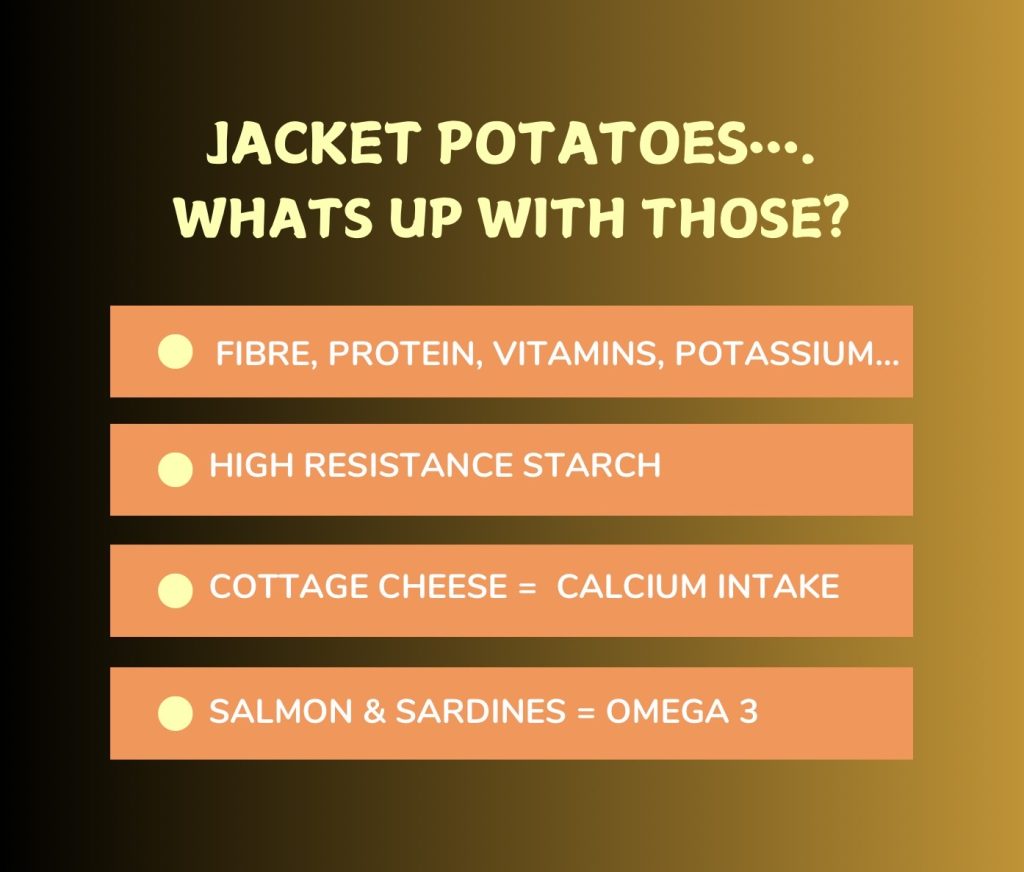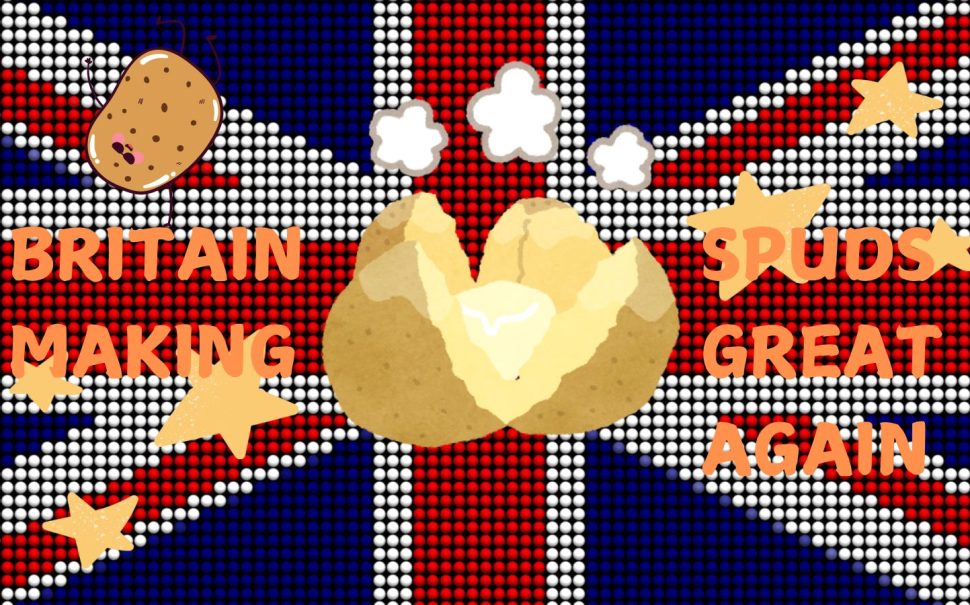If you told me a year or two ago that jacket potatoes would be dominating my For You page, I would have laughed.
But here we are – spuds are the new TikTok stars.
The humble jacket potato has gone from a primary school lunch memory to a modern day sensation.
British cuisine has always been the target of numerous jokes especially on social media, it is almost as if British food is used as a buzzword to describe bad food.
It is true that British food can turn out terribly if you don’t cook or season it a specific way but the main argument on why critics are often left displeased are for reasons of it being too bland, unexciting or underwhelming.
Once compared to Italian, Indian or even Japanese food, British food is proof that that seasoning isn’t a national priority – British ancestors fought for spices but it’s almost as if any seasoning wasn’t acquired in the first place.
Why are jacket potatoes cool again though? I have a few ideas.
First of all, it is undeniably a good example of a comfort food. Maybe because the seasons are getting colder – maybe nothing really soothes the souls’ winter depression plight like the internal hug a jacket potato provides.
As the Christmas season rolls in, they do well to embody the cozy festive spirit we all crave.
Given their versatility and comforting qualities, it is a no brainer to believe they deserve a spot on the table this December.
Another reason would have to be that jacket potatoes are easy to prepare with a variety of toppings to choose from and a food option that certainly won’t break the bank.
No matter the reason behind this newfound love for spuds, jacket potatoes are definitely enjoying their moments in the social media spotlight.
TikTok has turned this simple dish into a trendy favourite, with creative toppings and easy recipes inspiring foodies everywhere – all thanks to the viral sensation Spud Bros.
The pair are really crushing it with the marketing – with customers waiting in line from Manchester, London, Colorado, Chicago and even Japan!

Spud Bros, run by real-life brothers Jacob and Harley Nelson have amassed more than 3 million followers on TikTok with view counts climbing by the thousands each day – garnering nearly 2 billion views across videos made in the last year.
Die-hard fans start queuing as early as 4:30 a.m. for a chance at a free spud, even though the van doesn’t open until 11:30 a.m – now that’s dedication!
This all happens at a converted tram in Preston, Lancashire, with occasional appearances in Manchester.
A regular at Spud Bros, Anthony Haynes, 23, said: “Whilst it is true that Spud Bros spuds are tasty, I don’t think that is what is driving so many young people to this specific van.
“I do think it’s more to do with community spirit and their TikTok platform is helping build that sense of community.”
“The staff are friendly to chat with and there’s just something that feels so nice about being there.”
“It reminds me of high school a little with the long queues, thankfully I haven’t waited longer than an hour though.”
Spud Bros spuds aside, not everyone is fond of the warm bundle of joy that is a jacket potato.
I spoke to a Preston resident Macy Green, 24, who highlighted a divide in how this humble dish is perceived.
Macy said: “Eating a jacket potato reminds me of eating a hotdog, it doesn’t taste good plain.
“Jacket potatoes can be good but I’d be lying if I said they weren’t overhyped, I just tend to eat them sometimes during the winter as it helps with the seasonal depression a little.”
“Jacket potatoes have always been popular amongst office workers and older demographics, they are warm, cheap and convenient and not everybody has the financial means or patience to be able to cook something new everyday.”
“However if you’re buying them a few times a week from a van or stall, it does turn out to be quite pricey in the long run.”

To better understand the rising appeal and nutritional value of jacket potatoes, I spoke to Manchester Registered Nutritionist Aliya Porter, who was recently named Nutritionist of the Year 2024 for North West England by the SME Enterprise Awards UK.
She’s also the founder of Porter Nutrition, a practice based right here in Manchester.
Specialising in healthy eating without breaking the bank or time consuming meal prep, Aliya is dedicated to making nutrition accessible and practical for everyone.
According to Aliya, jacket potatoes aren’t just comforting but offer surprising health benefits that may be contributing to their resurgence in popularity.
Aliya said: “No one food is going to provide you with all the nutrition you need unless it is a prescribed meal replacement, however jacket potatoes provide plenty of nutrients.
“They contain a good amount of fibre, protein, vitamins B6 and C, potassium, folate and magnesium.”
“The bad reputation they get comes from either the size of the jacket potato or what we top them with.”
In addition to this, I discovered another reason for the jacket potatoes’ enduring popularity: its high resistance starch content.
Aliya explained that due to the resistant starch in the potato, they can fill us up for longer than refined carbohydrates, which helps control blood sugars and reduce hunger.
Jacket potatoes not only reduce hunger but also support better energy management throughout the day – a total win win in my opinion.
Aliya left me with some creative tips to take jacket potatoes to the next level.
Her advice? Think beyond the usual cheese and beans – try pairing with cottage cheese instead to help increase your calcium intake.
Want to boost your fibre intake? Try pairing your jacket potato with baked beans or a classic vegetable chilli.
With a little imagination, the classic jacket can transform into a nutritious powerhouse, proving that jacket potatoes are anything but boring.
| SOURCE | ||||
| Per 100g cooked | Potatoes, old, baked, flesh and skin | Pasta, white, dried, boiled in unsalted water | Rice, white, basmati, boiled in unsalted water | |
| Energy | kcal | 97 | 169 | 117 |
| Fat | g | 0.2 | 0.8 | 0.7 |
| Carbohydrate | g | 22.6 | 37.2 | 26.5 |
| Sugars | g | 1.4 | 1.1 | Trace |
| Protein | g | 2.5 | 5.5 | 2.8 |
| AOAC fibre | g | 2.6 | 2.5 | 0.6 |




